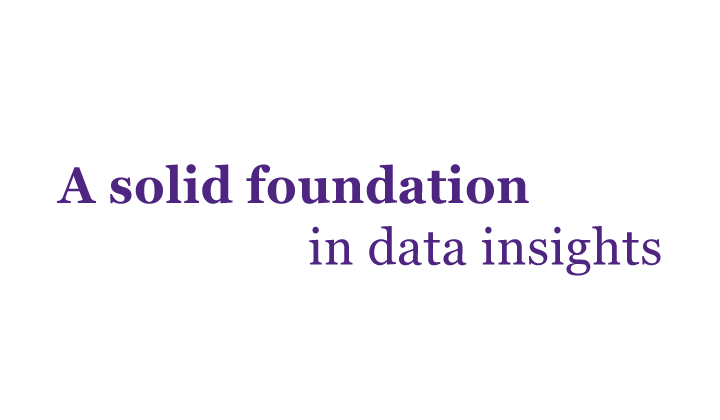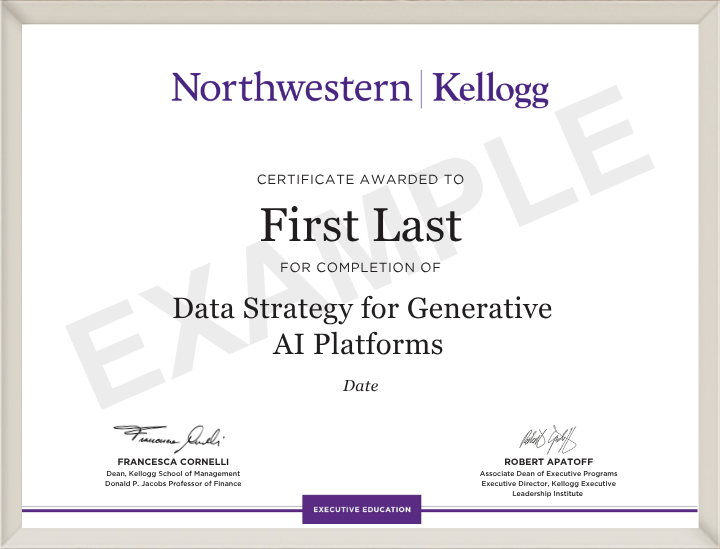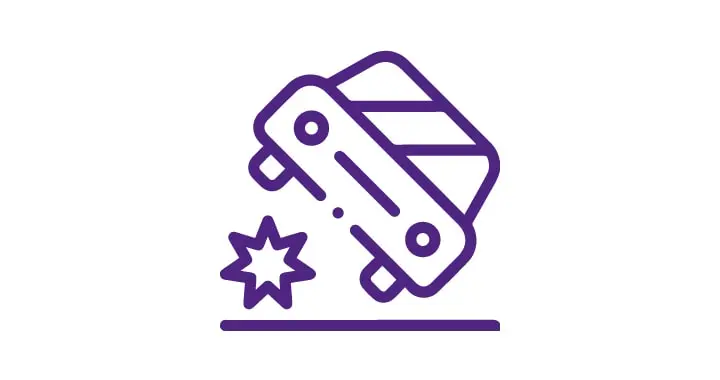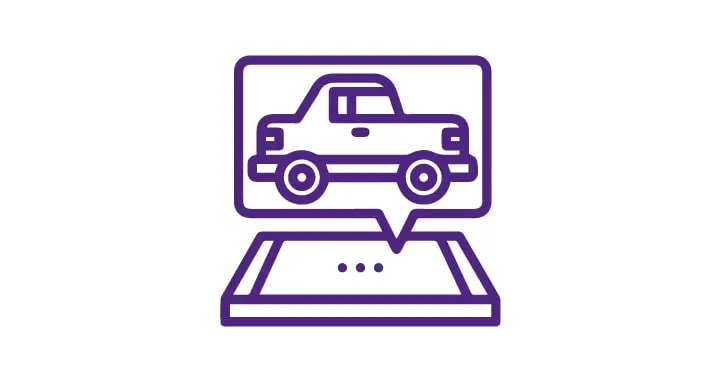
Data Strategy for Generative AI Platforms
Unlocking generative AI transformation with data insights and product analytics, a prerequisite program to fully unlocking generative AI enterprise value
Extract Data Insights for Better Business Outcomes
Data is emerging as an organization’s most strategic asset, and developing a cohesive data strategy begins with understanding the what, why, and how of data-driven decision making.
As leaders seek ways to bring better insights to their business teams, Kellogg’s Data Strategy for Generative AI Platforms illuminates the data journey and the tools, frameworks, and applications required to leverage your data as a strategic asset. Build confidence through tangible examples, case studies, and assignments, starting with an introduction to data and culminating in a primer on automations using machine learning (ML) methods.
53percent
30percent
4X
Key Takeaways
Apply frameworks and practical tools that form the foundational skills for product data analytics and data-driven strategy development.
Advance your strategic data insights to ask better questions, set data-driven goals, and improve business outcomes.
Understand the role of data in your organization and key aspects of data management that include the collection, cleaning, storing, processing, and application of data for business insights.
Understand the zoom levels of process and workflow to develop analytics and insights for personalized generative AI experiences.
Develop a rigorous outcome muscle focused on pathways for developing automation critical to the future of generative AI.
Transform your transactions into platform playbooks to increase productivity through future automation with generative AI.
Who Is This Program For?
This six-week online program is ideal for executives, managers and team members in product and related functions who want to make faster, data-driven decisions for better business outcomes. This program is right for you if you want to:
Use data insights to impact product goals - You are seeking new ways to increase revenue or profit at your organization and want to use strategic data IQ to make a meaningful impact on the business.
Tell a compelling story with data insights - You use data tools and algorithms and want to learn how to present data in a structured format that serves as a roadmap for other stakeholders.
Influence growth decisions using product data - You want to identify the right metrics to drive the next stage of growth and value creation for your organization.
Program Experience

Live Faculty Webinars

Case Studies

Real-World Application Exercises

Global Network of Collaborators

Dedicated Program Support Team

Live Office Hours

Peer Learning Feedback
Program Modules
Over the course of six weekly modules, you will develop your capabilities for examining the why, what and how of data-driven decision making.
Capstone Project
The capstone project enables you to apply program learnings to real-world business. You will tackle a tedious task in almost all organizations: creating a data automation product requirement specification. The ubiquity of generative AI opens up the possibility of using these process documents to turn any day-to-day task or system process into an automated function by leveraging the documented process and the program journey.
Live Session
Gain analytical insights from top companies to make the most of generative AI for your enterprise.
After analyzing the case studies, you will leverage learnings in an informative discussion session as well as understand how specific product management and product analytic jobs change with the use of generative AI. You will also channel generative AI experiences for unlocking real enterprise value.
The live session includes:
An exclusive discussion on the MSCW method, a new data framework that highlights “must collect,” “should collect,” and “won’t collect” as it relates to your generative AI platform execution
A conversation on working with “digital twins” or digital assistants and what the future of your role looks like across the strategy, planning, and analytics functions
Strategies to unlock full enterprise and platform analytic value with generative AI
Post-case reviews
Pathway to Becoming an Executive Scholar
Participants who successfully complete the Data Strategy for Generative AI Platforms program will accrue points towards becoming an esteemed Kellogg Executive Scholar; a unique credential that provides you the opportunity to customize your pathway to achieve your professional development goals.
Kellogg’s expansive program offerings allow you to build a variety of competencies that focus on practical application. More than about learning to lead, the path to becoming an Executive Scholar is about leading through learning.
Featured Activity - Build a Product Requirements Document (PRD)
Throughout the program, you will produce the elements necessary for a product requirements document (PRD). A PRD functions as a high-level, strategic document that:
Articulates the purpose of a product
Describes the customer and/or user of the product
Outlines the intent or problem the product is solving
Defines how success is measured
Personalized feedback will be provided on select assignments in the PRD.

Featured Learner Testimonial
“It was good to have access to the video transcripts and module summary; I found it particularly useful reviewing those to gradually digest the program material. This was an introduction to product and product data for me, so I enjoyed the thrill of learning new concepts!”
—Oluwaseun Malomo, Remote Business Support
Program Faculty

Clinical Professor of Marketing, Kellogg School of Management; Ex-head of Global Uber AI & ML
Professor Shah has built more than 10 products that are used by 2 billion people worldwide with an attributed total market cap value of over $3 billion. He started and sold hi...
Featured Guest Speakers

Clinique LLC (Former)
Leigh Garrison is a digital marketing executive with over 15 years of experience leading online businesses and an in-depth knowledge of digital marketing, social media, digita...

Narrative I/O, Inc
Nick Jordan founded Narrative I/O, Inc. in 2016 after spending nearly a decade in data-related product management roles. Prior to Narrative, he was the SVP, Product + Strategy...

Pathr.ai™
George Shaw is the founder and CEO of Pathr.ai™. An accomplished industry veteran working at the intersection of data and engineering, Shaw is a true innovator in the fields o...

Certificate
Upon successful completion of the program, Kellogg Executive Education grants a verified digital certificate of completion to participants. This program is graded as a pass or fail; participants must receive 80% to pass and obtain the certificate of completion.
After successful completion of the program, your verified digital certificate will be emailed to you in the name you used when registering for the program. All certificate images are for illustrative purposes only and may be subject to change at the discretion of Kellogg Executive Education.
Note: This online certificate program does not grant academic credit or a degree from Kellogg School of Management.
FAQs
Didn't find what you were looking for? Write to us at learner.success@emeritus.org or Schedule a call with one of our Program Advisors or call us at +1 315 502 3308 (US) /+44 128 291 1923 (UK) / +65 3129 4131 (SG)
Flexible payment options available.
Starts On





